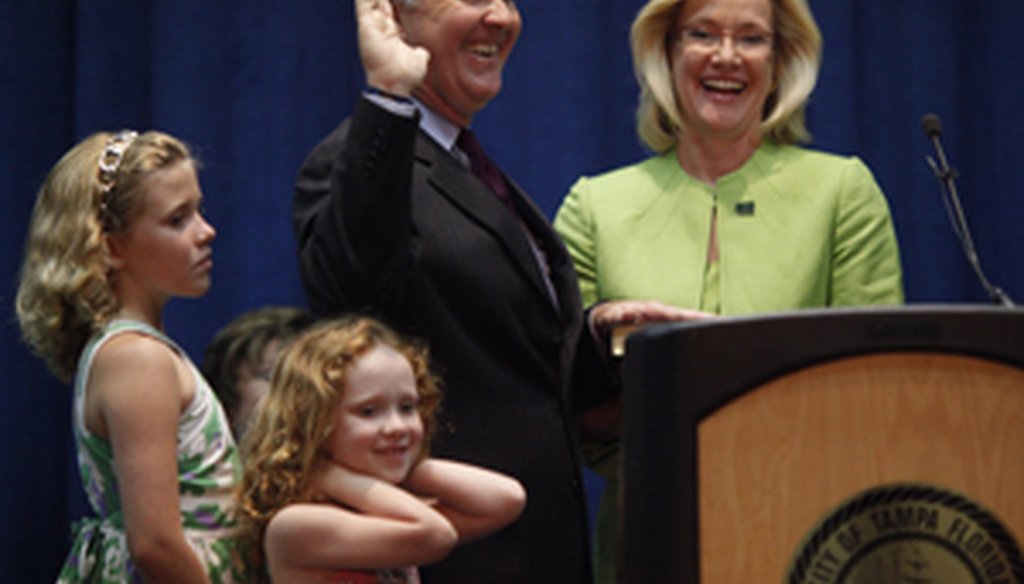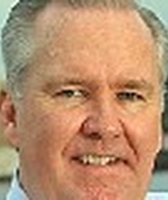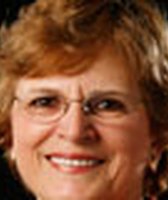Get PolitiFact in your inbox.

Tampa Mayor Bob Buckhorn takes the oath of office in April 2011.
As a candidate for mayor, Bob Buckhorn made lots of clear, detailed and even bold promises, like this one from his campaign website:
"Bob will craft an ordinance in his first week that eliminates panhandling on major arterial and collector streets in Tampa."
He didn’t. Not in his first week, and not since. Count that as a Promise Broken.
"I knew that was coming," Buckhorn said in an interview last week. "Yes." Pause. "That was not done in the first week."
Now Tampa voters can track Buckhorn’s performance on this and other campaign promises with the Buck-O-Meter, a new accountability project being launched by PolitiFact Florida, the fact-checking website of the St. Petersburg Times.
The Buck-O-Meter will compare Candidate Buckhorn’s intentions with Mayor Buckhorn’s follow-through on at least 33 promises.
The idea is the same as PolitiFact’s Obameter and Scott-O-Meter, which monitor campaign pledges made by President Barack Obama (508 promises) and Florida Gov. Rick Scott (59 promises).
Buckhorn’s promises played a key role in his 63 to 37 percent win over former Hillsborough County Commissioner Rose Ferlita. Especially in the runoff, he gained momentum, money and endorsements as he framed the race as a "competition of ideas."
"Platitudes are not plans," Buckhorn said the day after the March 1 primary. Voters want "someone who knows where he wants to go and has a blueprint to get there. Not just happy talk."
When it came to the city’s economic problems, voters did want a sense "of how we get out of this mess," said Scott Paine, a former City Council member and University of Tampa government professor.
"From that vantage point, I think that Buckhorn’s sense of vision, sense of doing something more aggressive and something new, did matter to a meaningful percentage of voters," Paine said.
Buckhorn, 52, keeps a copy of "The Buckhorn Plan," which he put on his campaign website, on his desk at City Hall. In four years, he hopes to remind voters about what he said he would do and what he did.
"That’s a fair way for people to base their decision to re-elect me or not," he said. "And I put it in writing specifically because I wanted to be held accountable."
• • •
Time and again during the campaign, Buckhorn vowed to "change Tampa’s economic DNA."
He said he would re-organize City Hall. A new deputy mayor for economic development would run everything related to growth, permitting and business. He would consolidate existing positions to create the job.
Now Buckhorn has his chance. Former director of growth management and development services Cynthia Miller left for Atlanta as he came into office.
In addition, Tampa economic development administrator Mark Huey is heading to a new job as president and chief executive of the Economic Development Corp. of Sarasota County.
But creating the deputy mayor’s job is just one of at least nine first-year-in-office promises Buckhorn made. Others include naming a task force to look at permitting, writing a plan to finance the rest of the Riverwalk and starting a master plan to guide urban growth in downtown, Ybor City, Channelside and neighborhoods such as Tampa Heights and North Hyde Park.
All of which, he said, is coming.
Buckhorn has kept one promise.
During the campaign, he supported a proposed referendum to offer property tax breaks to targeted businesses that expand their operations or move to Tampa.
Voters passed it. Taking the baton from former Mayor Pam Iorio, Buckhorn supported an ordinance to create the program. The City Council passed it May 5.
• • •
On public safety, Buckhorn made big promises to police, a key constituency:
• No layoffs or officer reductions through attrition.
• No support for changing their pension benefits.
• No attempt to suspend or eliminate their step raises, which were suspended one year under Iorio.
Those promises won’t be easy to keep. Buckhorn is starting his first city budget with a shortfall estimated at $25 million to $30 million.
But he said there are "better ways to balance that budget than reducing your presence of public safety officers."
"Our Police Department has done so well in reducing crime over the past eight or nine years that we’ve got to keep that trend going, which means you’ve got to keep bodies on the street and police officers chasing bad guys," he said.
More iffy is whether he can deliver the step increases, which would cost about $1 million to pay next year.
"I’ve built multiple scenarios as to whether we do or whether we don’t," he said. "Obviously, my goal would be to try and build a budget that has step increases as a part of it. I think given their performance, they deserve it."
• • •
On neighborhood issues, Buckhorn said he still wants a panhandling ban.
Despite his first-week promise, he said he waited to act largely because the Legislature was debating a proposed state law on roadside solicitations. That, he said, probably would have addressed most of Tampa’s problem.
But it didn’t pass. Buckhorn now says he wants to see what City Council members do at a June 16 workshop on the issue. If nothing comes of that discussion, "I’ll probably end up submitting something," he said.
"I’m willing to get chastised for not getting it done in the first week if it gets me an ordinance in the long run," he said.
Buckhorn also said he would:
• Create a second deputy mayor for neighborhoods and community empowerment to oversee everything from parks to code enforcement.
• Plant 1,000 trees a year.
• Work with Tampa Electric to make sure the city has street lights that work and are in the right places.
• Lobby Tallahassee and Washington for funds to expand the city’s reclaimed water program to every neighborhood.
• Create a "Neighborhood University" to train civic leaders.
• Launch a safety campaign to educate motorists on how to share the road with bicyclists.
On May 19, Buckhorn strapped on a helmet and pedaled from Davis Islands, where he lives, to City Hall. There, police unveiled a "Share the Road" safety campaign, which uses mobile electronic signs to tell motorists to give bicyclists at least three feet of space when passing.
So, Promise Kept?
"That’s not it in its entirety," he said. "The public service (campaign), particularly my involvement in it, will be forthcoming."
We’ll see.
Our Sources
See individual promises.





























